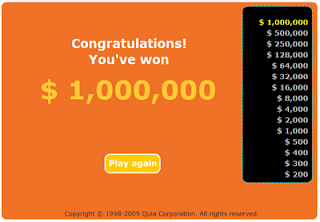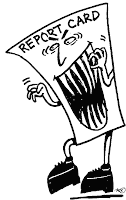Can
you connect with the book you are reading? Can you imagine yourself in
it? Does it remind you of things from your life? If not, maybe it's
just not the book for you.
The process of reading is when a person reads text and their inner voice makes connections between the words, and their life and prior knowledge. The more closely the reader connects to the text, the higher the level of comprehension.
At times connecting is simple. At others, especially when the text is not in an area that the reader has background knowledge, comprehension is difficult. To be a better reader, think about how the story relates to your life.
5. Ask yourself questions as you read. Think about how the story relates to your life, and things that you know.
6. When reading nonfiction, think about ways the information relates to what you already know.
7. If you are reading a book, and don't connect with it, ditch it and find one where you can make connections.
The process of reading is when a person reads text and their inner voice makes connections between the words, and their life and prior knowledge. The more closely the reader connects to the text, the higher the level of comprehension.
At times connecting is simple. At others, especially when the text is not in an area that the reader has background knowledge, comprehension is difficult. To be a better reader, think about how the story relates to your life.
Readers should concentrate on their inner voice and connections.
2. Focus on the characters. Compare them to yourself and people you know.
3. Put yourself in the story and think about how would react, and how you reacted when you were in a similar situation.
4. Look at problems. How do they compare to problems you have faced?
1. Visualize. Picture yourself in the story and think about how the setting and characters look.
2. Focus on the characters. Compare them to yourself and people you know.
3. Put yourself in the story and think about how would react, and how you reacted when you were in a similar situation.
4. Look at problems. How do they compare to problems you have faced?
5. Ask yourself questions as you read. Think about how the story relates to your life, and things that you know.
6. When reading nonfiction, think about ways the information relates to what you already know.
7. If you are reading a book, and don't connect with it, ditch it and find one where you can make connections.
Here are the start to connections.
Text-to-self:
This is similar to my life . . .
This is different from my life . . .
Something like this happened to me when . . .
This reminds me of . . .
This relates to me . . .
When I read this I felt . . .
Text-to-text:
This reminds me of another book I’ve read . . .
This is similar to another thing I read . . .
This different from another book I read . . .
This character is similar/different to another character . . .
This setting is similar/different to an other setting . . .
This problem is similar/different to the problem in . . .
Text-to-world:
This reminds me of the real world . . .
This book is similar to things that happen in the real world . . .
This book is different from things that happen in the real world . . .
Students, as you read today, what connections did you have?
Image from http://www.flickr.com/photos/pfala/3368846439/sizes/s/



































